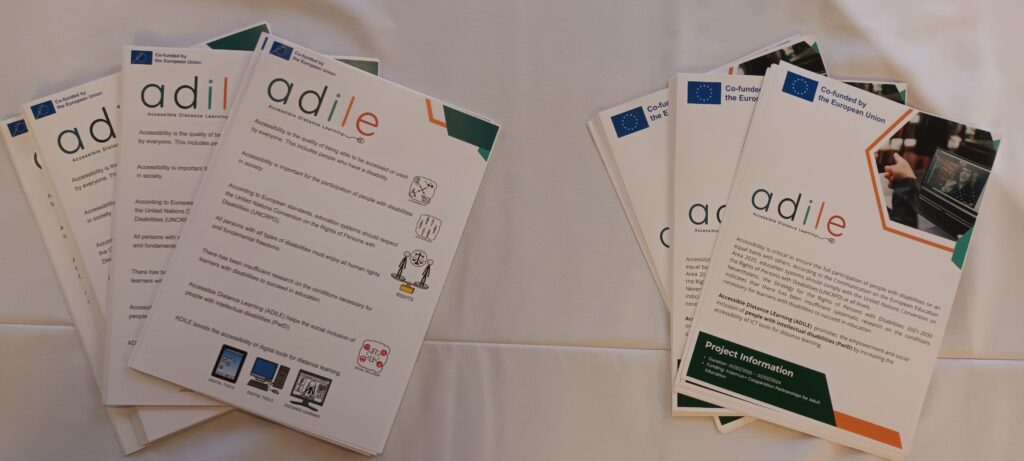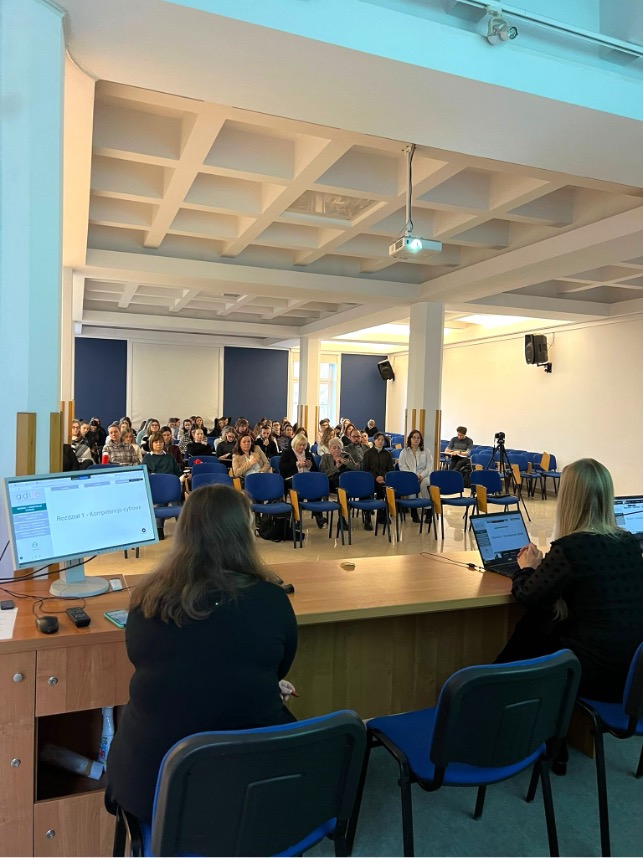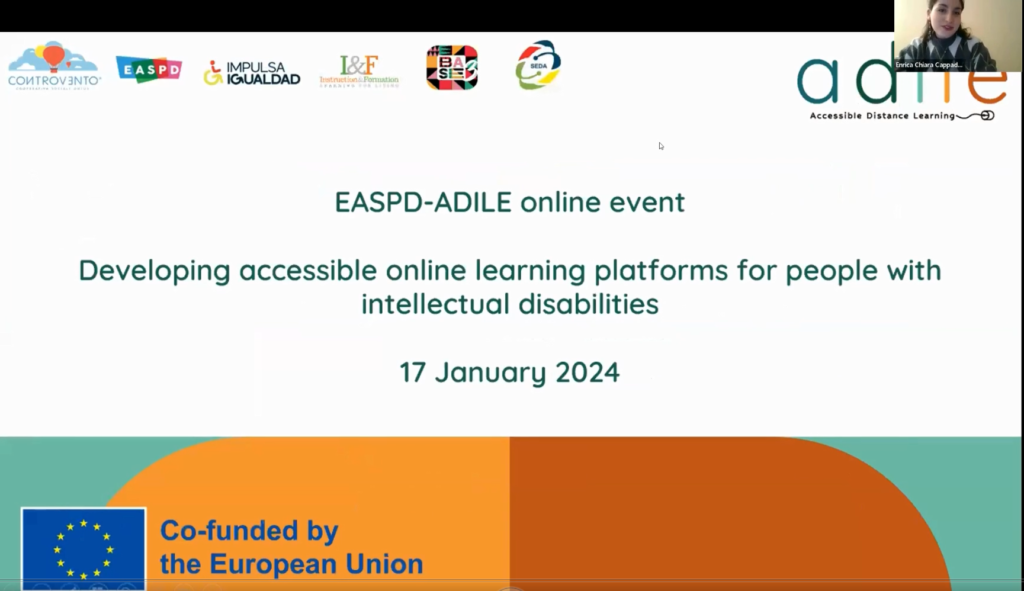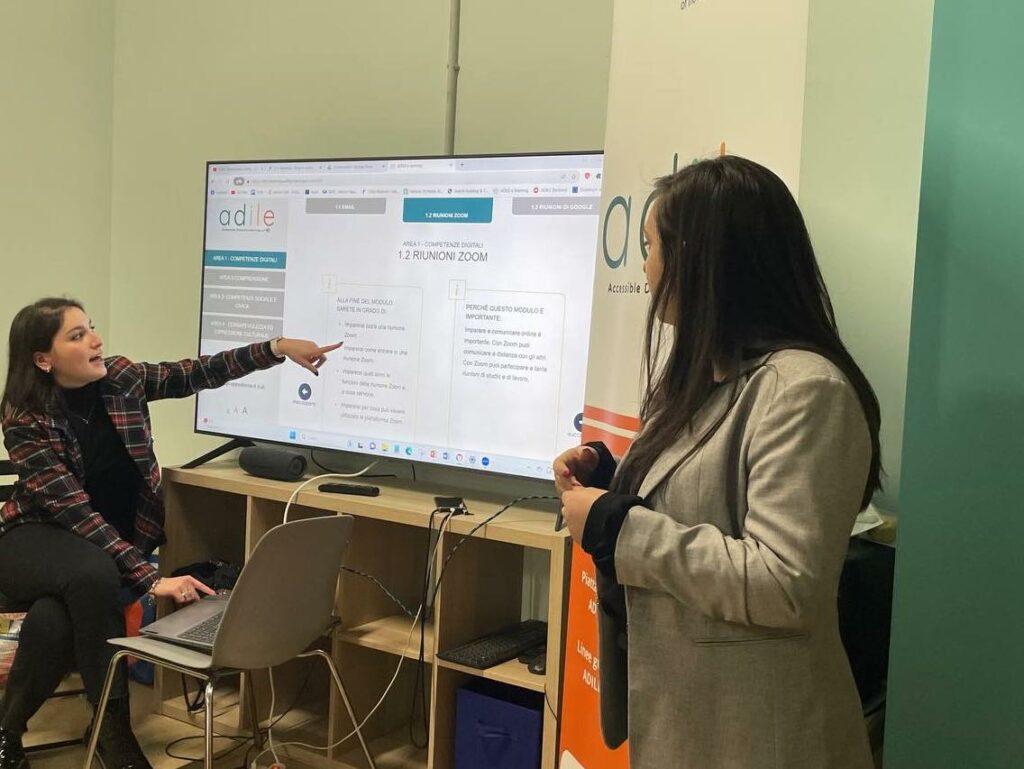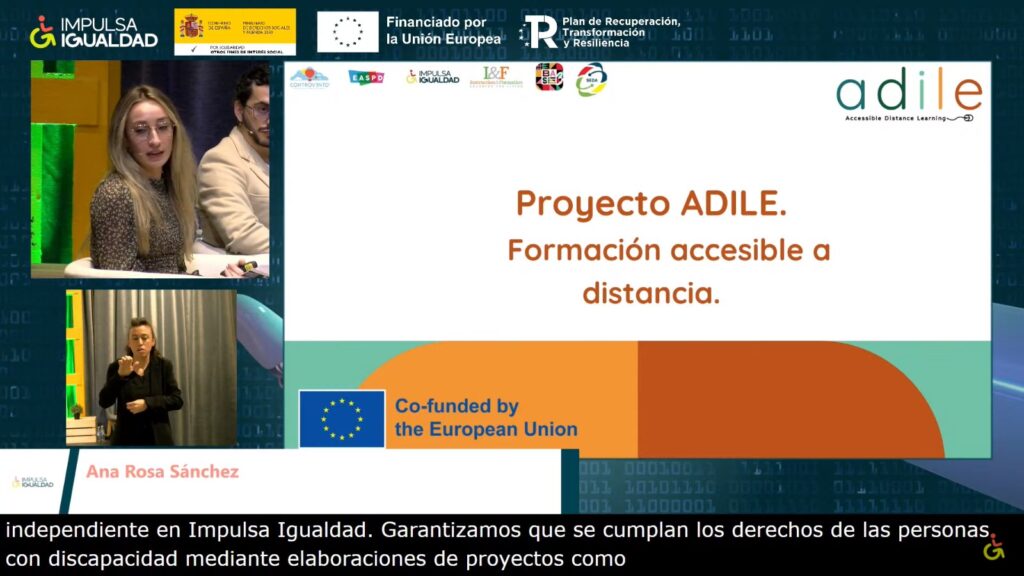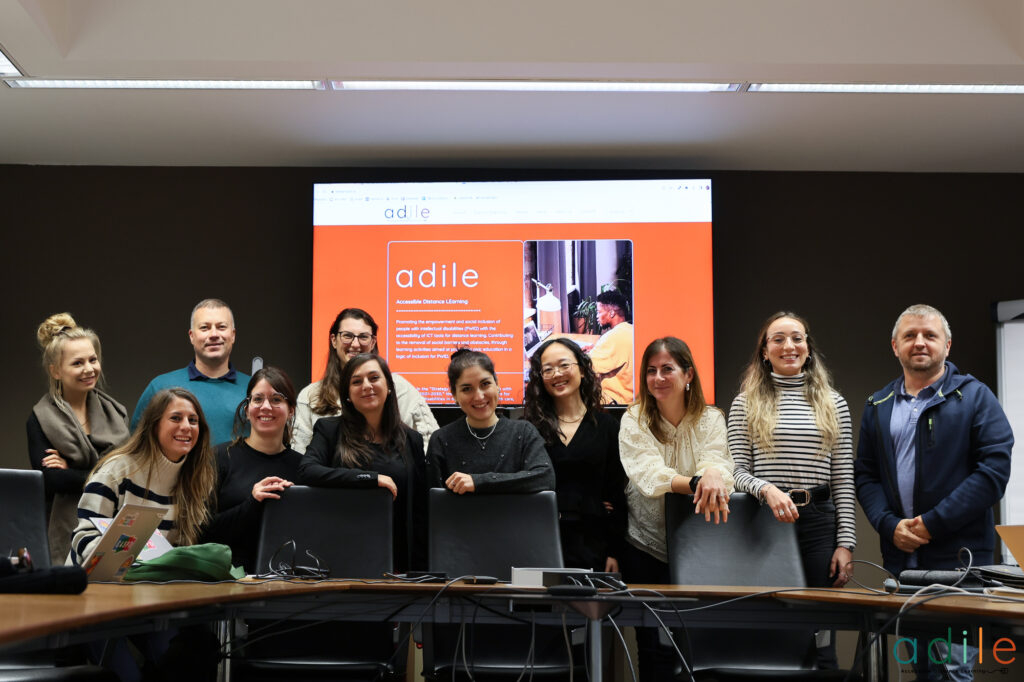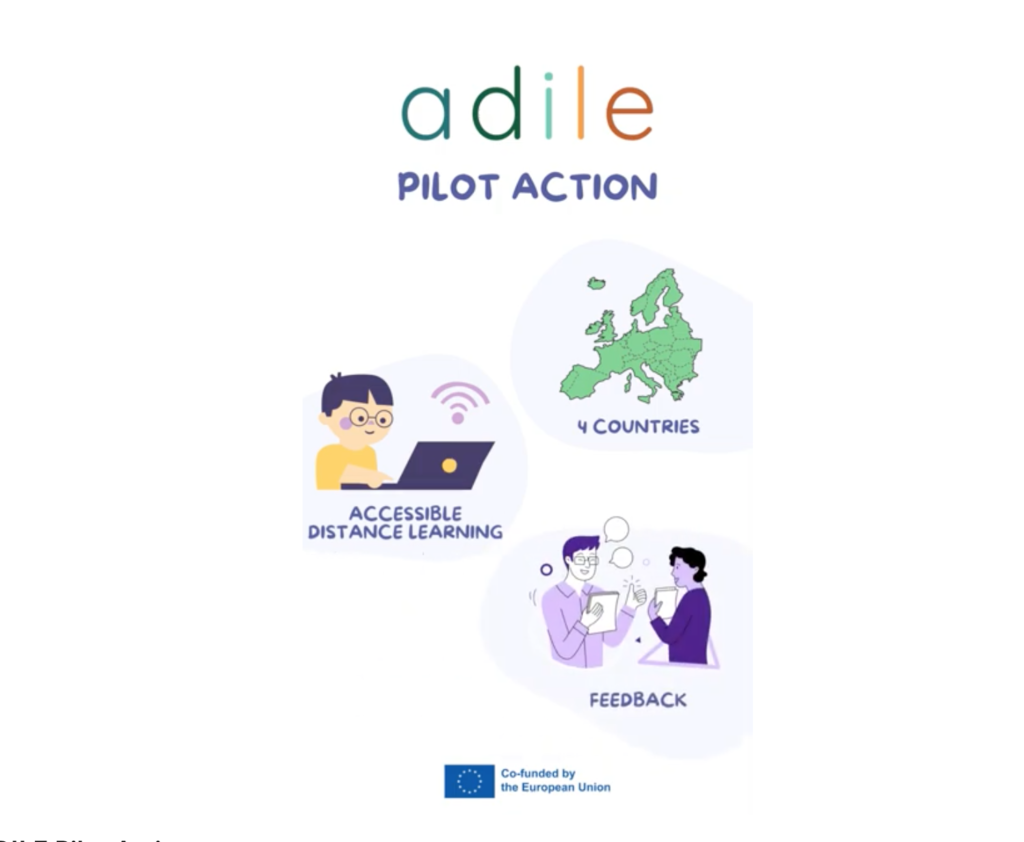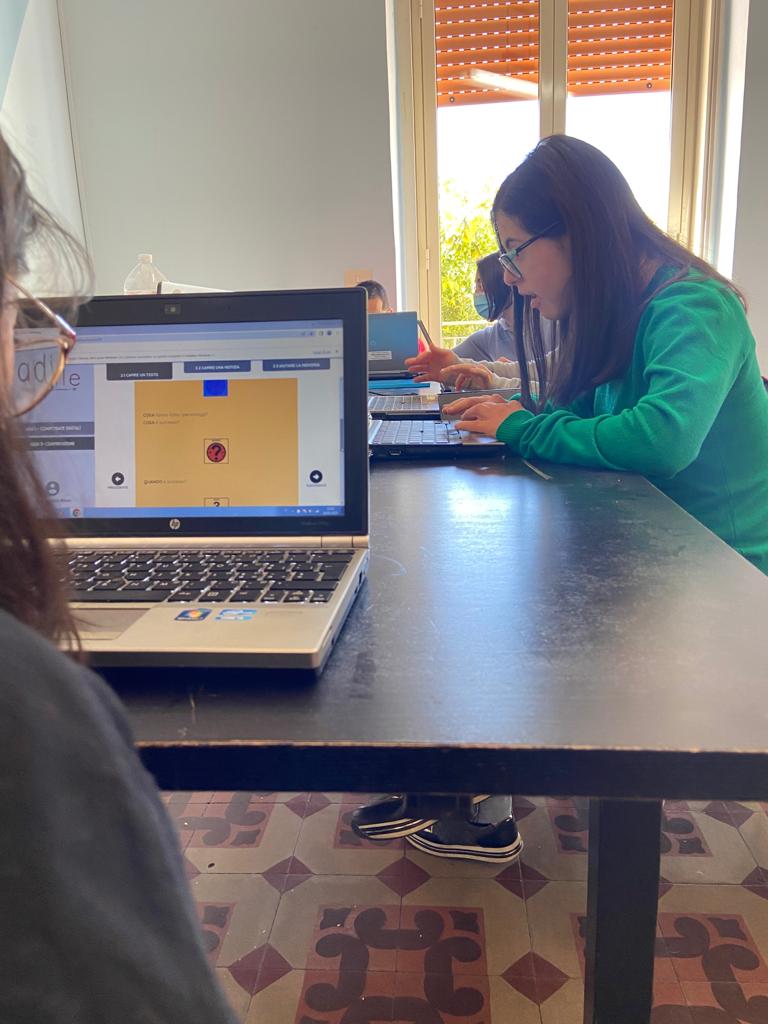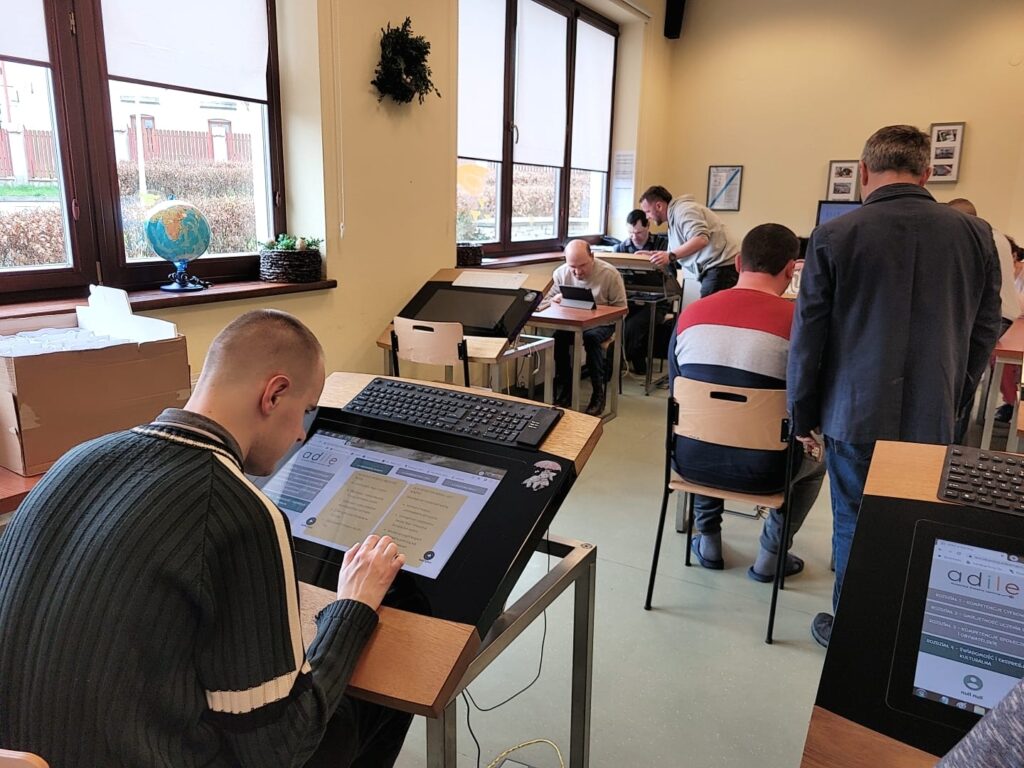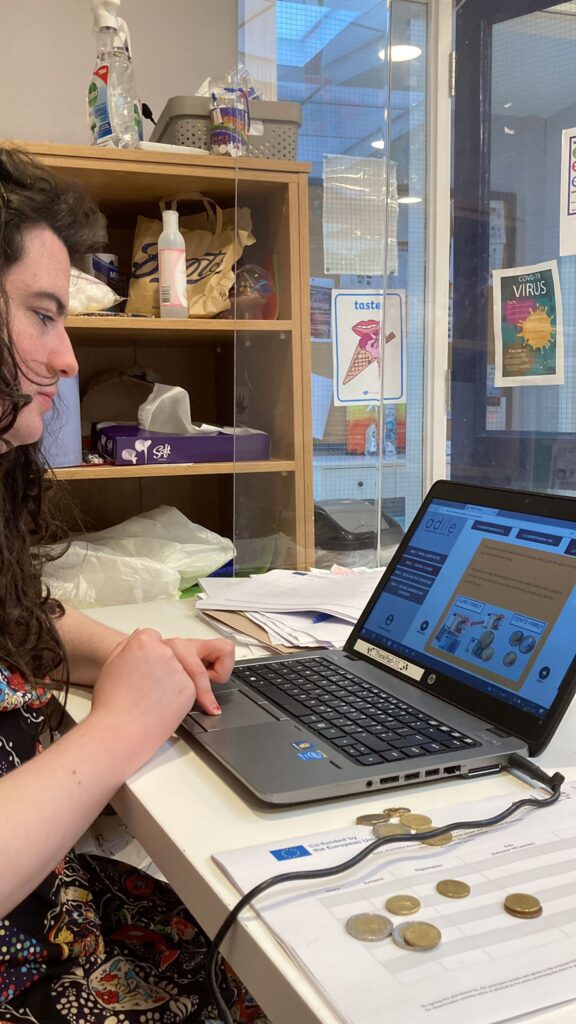On 17 January 2024, EASPD organised and hosted an online multiplier event for the ADILE project on the topic of developing accessible online learning platforms for people with intellectual disabilities. This event was crucial in disseminating and promoting the project results the ADILE project, as well as bringing together a diverse group of relevant actors to discuss such platforms from various key perspectives. These perspectives included people with intellectual disabilities who co-design accessible online platforms, educators who specialise in teaching people with intellectual disabilities, European service providers that have developed such platforms, and a global disability rights organisation. With this, this event was particularly interesting for people and organisations interested in inclusive education, accessible digital tools for people with disabilities, and the social inclusion of people with intellectual disabilities. Overview of the event The event began with an introduction by Catherine Lau (Communications Officer at EASPD) and Enrica Chiara Cappadonna (Project and Programme Implementation Coordinator at Controvento Catania). Here, Enrica touched upon how digital and educational inequalities that people with intellectual disabilities (PWIDs) face worsened during the Covid-19 pandemic, spotlighting the lack of accessible digital tools for PWIDs to use for distance learning. Panel 1: Presentation of the ADILE project results After the introduction, it was time for the first panel, which was moderated by Irene Morici (Project Manager and Founder of BASE3). This panel detailed the project results of the ADILE project, with each result being presented by the partner organisation that was responsible for it. First, the ADILE Toolkit – which includes the Training Toolkit and Methodology, Guidelines for Educators, and Toolkit for PWIDs – was explored by Francesca Dadomo (EU Project Manager and Coordinator at IMPULSA IGUALDAD, formerly Predif). Then, the ADILE Educational Online Platform was presented by Elena Volterrani (European Project Assistant and Designer at BASE3). Here, Elena discussed the accessibility standards of ADILE’s platform, including font colour and size, colour contrast, easy-to-read language, and the use of pictograms. The discussion then moved onto the final project result: the ADILE Guidelines, which was explored by Catherine. This section of the panel explored the results and analysis of the ADILE and the subsequent guidelines for the establishment of a European model for accessible distance learning for PWIDs. In short, the national and European recommendations proposed by the ADILE project partners to overcome the main challenges identified from the pilot action were touched upon. Panel 2: Experiences of developing online platforms for persons with intellectual disabilities – co-production, technical approach, and disability rights This was followed by the second panel, which was an interactive discussion focusing on the experiences of developing online platforms for persons with disabilities. Moderated by Catherine, this panel began with Hazel Nicholl (Researcher, Consultant, and Trainer at Instruction & Formation), who touched upon the feedback that was given by the educators and learners with disabilities to improve the platform, as well as their general feedback for making digital education more accessible on a wider scale. Keeping in line with a learner’s perspective of accessible distance learning, the panel moved onto the second set of speakers: Tony Davis (Co-designer and Self-Advocate at Saint John of God Community) and Sarah Boland (Digital Accessibility and Assistive Technology Facilitator at Saint John of God Community). They not only addressed the role of co-creation, but also shared their methodology of co-creation and implementing accessibility, specifically when developing online learning platforms. The panel then took a more global approach, with Janina Arsenjeva (e-Learning Content Developer at International Disability Alliance) discussing the process of developing an online course from the ground up, inclusion and accessibility as key objectives, and accessibility from an international viewpoint. Finally, the panel circled back to the ADILE platform, as Luca Pagliaricci (Project Manager and Consultant at BASE3) discussed his experiences of working with a web developer on creating an accessible online platform for people with intellectual disabilities. With this, he also shared what he learnt from that experience about digital accessibility and highlighted technical aspects to keep in mind regarding the accessibility of online tools. Breakout rooms – Exploring online learning platforms for persons with disabilities In the final section of this event, there were three interactive Breakout Rooms taking place simultaneously. Each room focused on a particular theme and was hosted by one person, who presented their work, and answered questions from attendees. One Breakout Room was hosted by Luca. For his session, he demonstrated how the ADILE platform operates from both a learner’s and educator’s position (the user’s end and the backend of the platform, respectively). Another Breakout Room was hosted by Kalianne Farren (e-Learning Officer at EASPD). Here, Kalianne presented EASPD’s Knowledge Hub and explained how the ADILE platform – among other online learning platforms and resources – can be made more available for use. The remaining Breakout Room was hosted by Jesús Puente Belda (Digital Transformation Programme Coordinator at Fundación Juan Ciudad) and Omor Ahmed (Project Officer at EASPD), who presented the RightToConnect e-Learning platform. Key takeaways From the panels and Breakout Rooms, the following key takeaways were gathered: Co-creation is key. Co-creation / -production / -design is one of the most fundamental aspects to implement when developing a platform for persons with disabilities. This enables web developers, service providers, and other relevant actors to create platforms with the invaluable feedback and contribution of people with disabilities and educators within the disability sector. Mainstream accessible online education. Making education accessible in mainstream and formal educational spaces is crucial, in order to support the social inclusion of persons with disabilities. Give these platforms another life. The presentation of EASPD’s Knowledge Hub was an opportunity to learn how to keep the ADILE platform (among others) alive and to continue developing them, so that they become more accessible and available for those who need it. Make it global. It is important for us to think about accessible distance learning and digital tools within an international context, and not just build frameworks and platforms for European contexts. For example, this could mean having platforms

